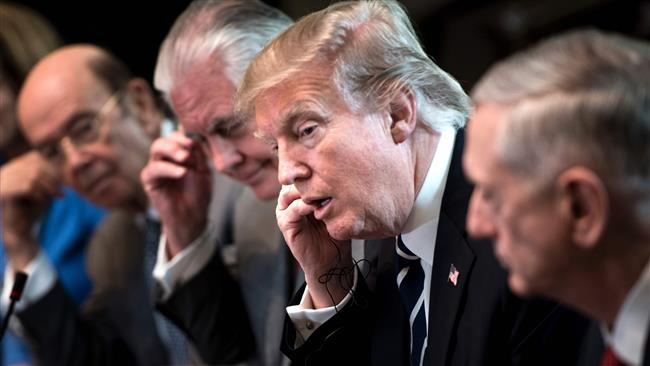Living with the JCPOA, Minus US

US President Donald Trump is poised to withdraw the US from the Iran nuclear deal known as the JCPOA (Joint Comprehensive Plan of Action) and, naturally, the question is this will sound the death knell for the multilateral agreement endorsed by the UN Security Council or will it somehow survive, albeit under a truncated circumstance?
From Iran, we have so far observed divergent responses to the above question, with the Iranian officials increasingly warning that if the US withdraws then the whole deal collapses while, simultaneously, also hinting that as long as the other parties to the agreement remain faithful to their obligations, then the Iranian response might be more nuanced and indicative of Iran's strong desire to maintain the viability of the "win-win" agreement. The latter has been dismissed as untenable by certain voices in Iran, including the editorial of the daily Kayhan, arguing that due to US's non-compliance the deal is already dead. Although there is certainly a grain of truth to the latter argument, nonetheless it is important to keep in mind the fact that thanks to the JCPOA the most important Western sanctions, i.e., the energy sanctions, were lifted as a result of which Iran has been able to recuperate its OPEC status and engage in normal oil and gas exports, which might be once again imperiled if the US re-imposes the oil sanctions. Essentially, this means that despite a considerable slow-down in foreign investment in Iran due to the US threat of pulling out of the JCPOA, there are still net benefits from the deal that in turn reinforce the argument of those voices in Iran that lean on the direction of staying in the deal irrespective of US's ultimate decision.
A JCPOA minus US is, however, feasible only when (a) the other parties fully implement their obligations under the deal and (b) they protect their trade and financial relations with Iran from any US "secondary sanctions" targeting their companies doing business with Iran. This scenario certainly is within the realm of possibilities and entails a number of legal initiatives by the Europeans in particular, in order to neutralize the US sanctions. Without such initiatives, it is a sure bet that the JCPOA will be dead in the water with absolutely no chance of survival. But, the question is: Can Europe stand up to the US, or will the European governments fall short of the necessary measures above-mentioned and give priority to their transatlantic ties -- that dwarf the scope of their trade relations with Iran?
While we await the passage of time for a definitive answer to these questions, it is important for Iran to undertake the necessary 'risk analysis' with respect to the pros and cons of its various options in the face of a US exit from the JCPOA and thus identify the complex repertoire of tactics and strategies tailored for such a contingency. The ultimate aim of such analyses is to protect Iran's interests, to minimize the risks and damages and to maximize the benefits, if any, of US's withdrawal. Concerning the latter, certainly US lacks the justification for its withdrawal and even the French President Macron has questioned it as part of a US "strategy of tension" and for "domestic reasons." The legitimacy deficits of the US action notwithstanding, its JCPOA exit would harm the US's global image and undermine its credibility, a big minus that can and should be taken advantage of Iran in a 'rule-based' approach that utilizes the JCPOA's internal mechanisms to address US's rule-breaking behavior, pertaining to Paragraphs 36 and 37 of Annex 2 of the JCPOA. The latter entails, among other things, a meeting of ministers of foreign affairs that, one can only imagine, will not go well for the US, in light of the growing pressure on US by the other parties to abide by the agreement. Nor is there any possibility of a "snap-back" of UN sanctions as a result of the US's non-compliance, given the preponderance of anti-US mood in the international community when and if the US withdraws.
The key advantage of Iran's "rule-based" approach, which requires a patient diplomacy and avoiding the pitfalls of a passion-based reaction, is that it chips away at US's anti-Iran strategy and builds up Iran's network of global supporters, seeking to neutralize US's new sanctions. On the other hand, a more disproportionate response, such as exiting the JCPOA, would deprive Iran of the ability to harvest the windfalls of US's rogue behavior and would therefore be detrimental to Iran's national interests. After all, Trump is only president for another couple of years and his misstep on the JCPOA and other international agreements will likely lessen his chance of re-election and that simply means that Iran's response has to take the term limits of Trump's presidency into account as well.

